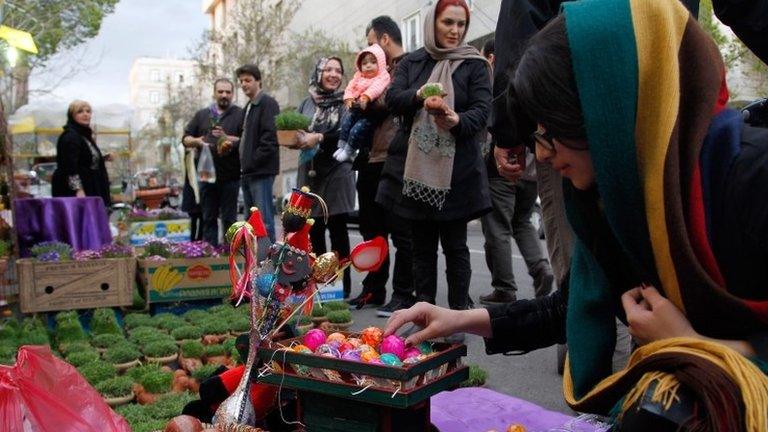Iran currency plunge bites into border trade with Turkey
- Published
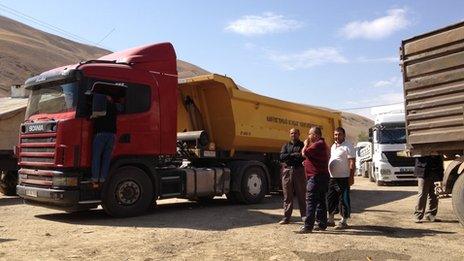
These trucker drivers had parked on the Turkish side of the border with Iran
Iran's currency has plummeted to record lows against the dollar, sparking protests by traders in Tehran. The BBC's James Reynolds briefly crossed over the Turkish side of the border into Iran, where he was invited into a free trade zone.
The Islamic Republic of Iran starts on the other side of a blue gate which is held shut with a simple bolt lock.
A muddy puddle on the ground straddles Iran and Turkey. Next to the blue gate, four Iranian flags fly from white poles. On the hill overlooking the border, there is a double portrait of Iran's two Supreme Leaders - Ayatollahs Khomeini and Khamenei.
A group of Iranians wearing plain clothes and baseball caps keeps half an eye on the truck drivers waiting in the free trade zone on the Turkish side of the border.
In normal times, there would be a long line of trucks waiting to cross the border into Iran. Turkey exports iron to Iran for use in the country's construction industry (a solid material vital for construction in a nation prone to earthquakes).
But, on this visit, the car park is semi-forlorn.
Trucks 'stopped coming'
The currency collapse in Iran means that Iranian business can't afford to place their normal orders from Turkey. One Turkish customs official says that Turkish trucks stopped coming to the border several days ago.
The same official invites the BBC team to cross briefly through the blue gate into the Iranian section of the free trade zone. This is a small area where Turkish drivers are allowed to drop off their goods for collection by Iranian drivers.
It is not the formal border crossing itself which is a few metres along the road. The atmosphere at the gate is relaxed.
One Turkish man who serves tea inside the zone appears to be allowed to come and go at will in order to use the tap on the Turkish side to wash his cups.
The gate is opened, and the Turkish official accompanies us onto the other side. He asks us not to take any pictures.
The female member of our team is asked to cover her head with a head scarf (fashioned out of a sports jacket) in order to respect Iranian law.
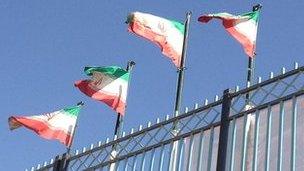
The Turkish side of the Esendere border crossing with Iran
'Empty' free-trade zone
We are shown towards a small shop where customers can buy Iranian pistachio nuts, shampoo, washing-up liquid, and tea.
There is only one man in the shop. He happily shows us two Iranian currency notes of 100,000 and 50,000 rials - each featuring the face of Ayatollah Khomeini. He downplays the impact of the currency crisis - saying that the currency rises and falls.
But the emptiness of the free trade zone tells a different story. The Turkish man who serves tea points out that the shop also accepts Turkish lira and US dollars.
After five minutes - and a gift of free pistachios - the Turkish official escorts us out of Iran's section of the free trade zone. An Iranian guard wearing a safari-colured uniform smiles as we say goodbye. The blue gate is closed behind us.
- Published3 October 2012
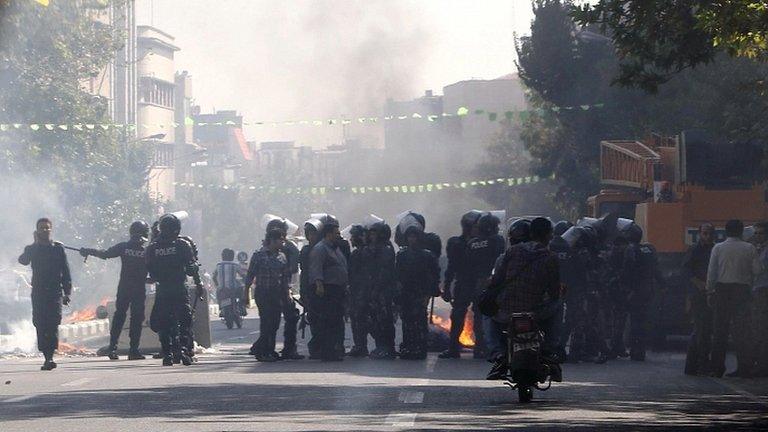
- Published2 October 2012
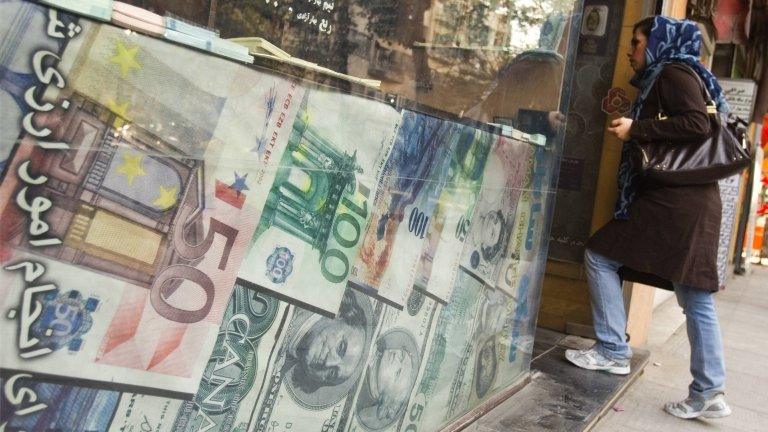
- Published30 March 2015
